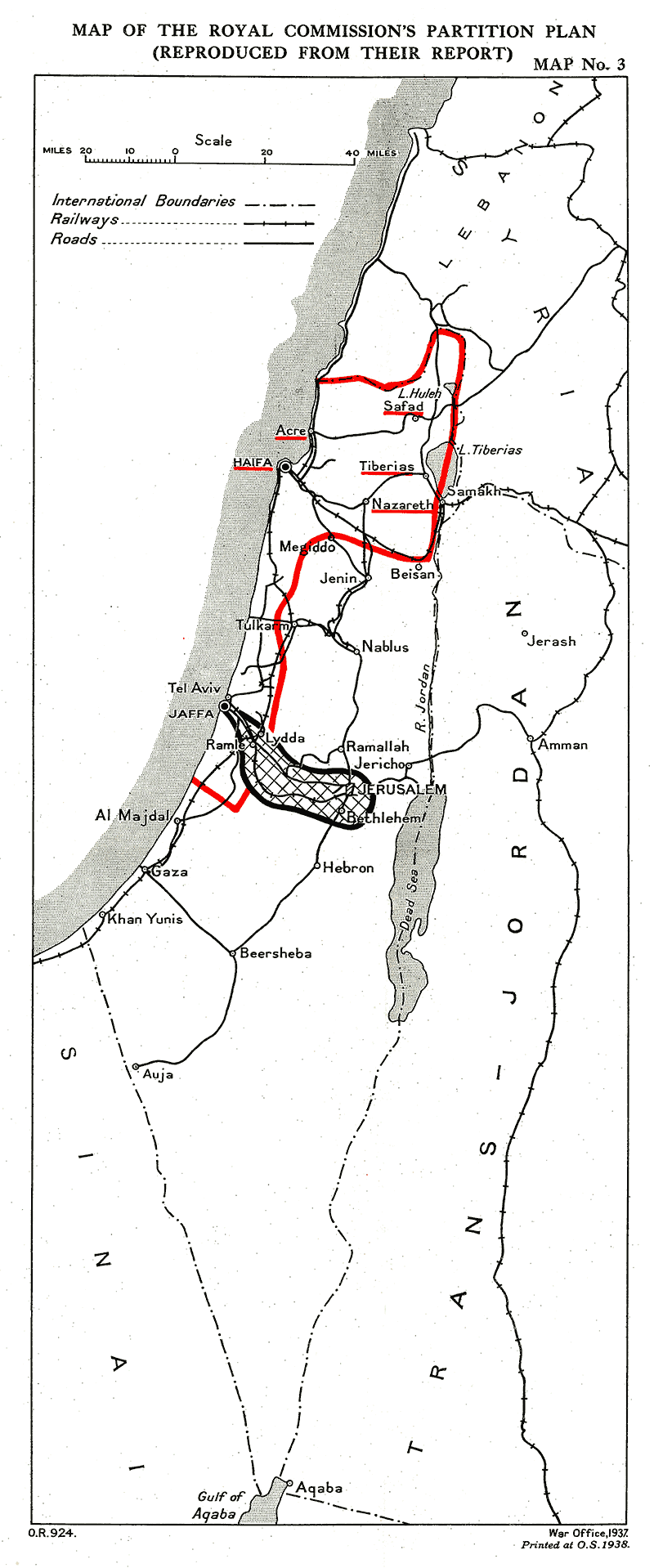
Peel Commission
 The Peel Commission, formally known as the Palestine Royal Commission, was a British Royal Commission of Inquiry, headed by Lord Peel, appointed in 1936 to investigate the causes of conflict in Mandatory Palestine, which was administered by the United Kingdom, following a six-month-long Arab general strike.
The Peel Commission, formally known as the Palestine Royal Commission, was a British Royal Commission of Inquiry, headed by Lord Peel, appointed in 1936 to investigate the causes of conflict in Mandatory Palestine, which was administered by the United Kingdom, following a six-month-long Arab general strike.On 7 July 1937, the commission published a report that, for the first time, stated that the League of Nations Mandate had become unworkable and recommended partition. The British cabinet endorsed the Partition plan in principle, but requested more information. Following the publication, in 1938 the Woodhead Commission was appointed to examine it in detail and recommend an actual partition plan.
The Arab leadership opposed the partition plan. The Arab Higher Committee opposed the idea of a Jewish state and called for an independent state of Palestine, "with protection of all legitimate Jewish and other minority rights and safeguarding of reasonable British interests". They also demanded cessation of all Jewish immigration and land purchase. They argued that the creation of a Jewish state and lack of independent Palestine was a betrayal of the word given by Britain.
The Zionist leadership was bitterly divided over the plan. In a resolution adopted at the 1937 Zionist Congress, the delegates rejected the specific partition plan. Yet the principle of partition is generally thought to have been "accepted" or "not rejected outright" by any major faction: the delegates empowered the leadership to pursue future negotiations. The Jewish Agency Council later attached a request that a conference be convened to explore a peaceful settlement in terms of an undivided Palestine. According to Benny Morris, Ben-Gurion and Weizmann saw it "as a stepping stone to some further expansion and the eventual takeover of the whole of Palestine". Provided by Wikipedia
1
Published: London : His Majesty's Stationery Office, 1937
Other Authors:
“...Palestine Royal Commission...”
Library:
Germania Judaica (Cologne)
Book
2
Published: London : HMSO, 1937
Other Authors:
“...Palestine Royal Commission...”
Library:
The Wiener Library for the Study of the Holocaust & Genocide (London)
Book

